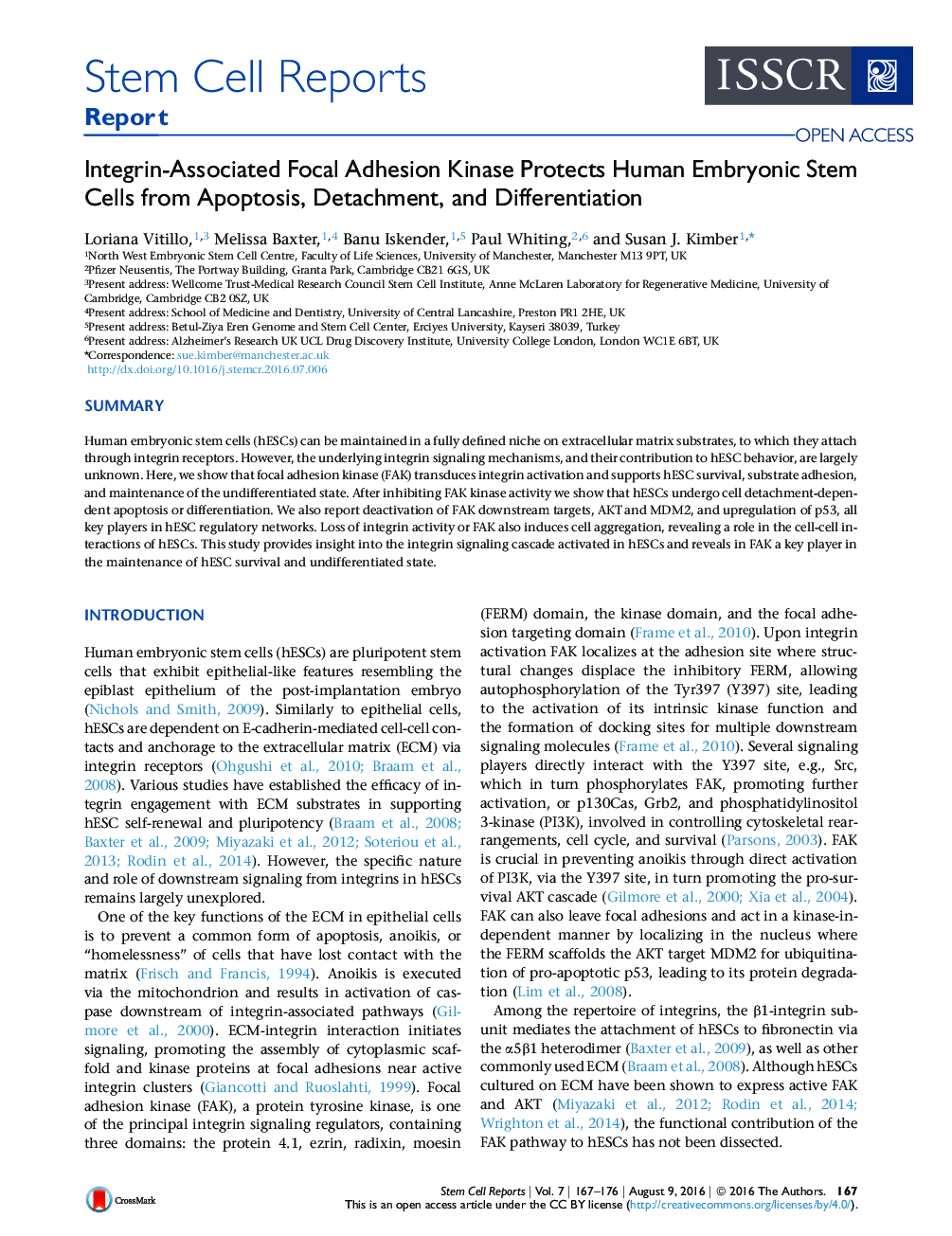| Article ID | Journal | Published Year | Pages | File Type |
|---|---|---|---|---|
| 2093210 | Stem Cell Reports | 2016 | 10 Pages |
•Integrin activation in hESCs is transduced by FAK kinase•FAK protects hESCs from anoikis upstream of the AKT/MDM2/p53 cascade•FAK is required for maintenance of low contractility and attachment of hESCs•Prolonged inhibition of FAK induces non-biased hESCs differentiation
SummaryHuman embryonic stem cells (hESCs) can be maintained in a fully defined niche on extracellular matrix substrates, to which they attach through integrin receptors. However, the underlying integrin signaling mechanisms, and their contribution to hESC behavior, are largely unknown. Here, we show that focal adhesion kinase (FAK) transduces integrin activation and supports hESC survival, substrate adhesion, and maintenance of the undifferentiated state. After inhibiting FAK kinase activity we show that hESCs undergo cell detachment-dependent apoptosis or differentiation. We also report deactivation of FAK downstream targets, AKT and MDM2, and upregulation of p53, all key players in hESC regulatory networks. Loss of integrin activity or FAK also induces cell aggregation, revealing a role in the cell-cell interactions of hESCs. This study provides insight into the integrin signaling cascade activated in hESCs and reveals in FAK a key player in the maintenance of hESC survival and undifferentiated state.
Graphical AbstractFigure optionsDownload full-size imageDownload as PowerPoint slide
